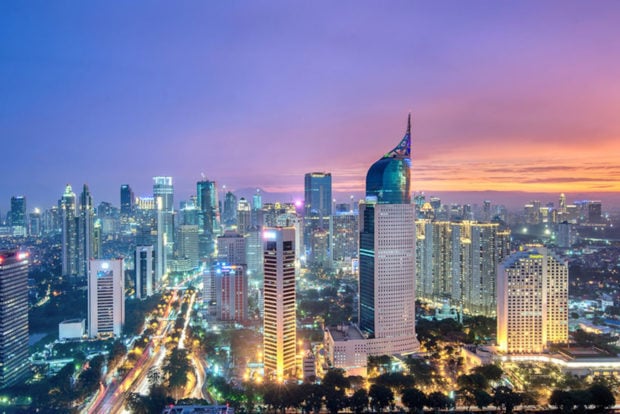Indonesia to move capital from Jakarta to East Kalimantan

Indonesia’s president, Joko Widodo, has announced that the national capital will move from Jakarta, on the island of Java, to the province of East Kalimantan on Borneo.
During a televised news conference, Widodo said the burden has become too heavy on Jakarta as the centre of government, business, finance, trade and services, and that the relocation will address inequality.
Jakarta is home to 10 million people, and is overcrowded and heavily polluted. Road gridlock and public transport woes cost the city 100 trillion rupiah (US$7bn) a year in economic losses, according to official estimates. It is prone to earthquakes and flooding, and parts of the city are sinking as much as 25cm a year as a result of subsidence.
Spreading wealth
Widodo said the decision to move the capital comes after three years of intense study, and will spread wealth away from Java – which is home to 60% of Indonesia’s 270 million population, and more than half its economic activity – to Kalimantan, which is four times bigger but accounts for less than a tenth of gross domestic product.
“We couldn’t continue to allow the burden on Jakarta and Java island to increase in terms of population density,” Widodo said. “Economic disparities between Java and elsewhere would also increase.”
The move will see the government’s administrative functions moved from Jakarta to the yet-to-be-built city in Kalimantan 1,400km away, said Widodo. However, Jakarta will continue to be the nation’s commercial and financial centre.
Widodo said moving the capital – an idea mooted by various presidents over decades – will cost 466 trillion rupiah (US$32.7bn), of which the state will fund 19%, with the rest from public-private partnerships and private investment. The price tag includes new government offices and homes for about 1.5 million civil servants, who are expected to start moving to the new capital in 2024, The Guardian reported.
If parliament approves the bill, construction on the new capital will begin next year.
Environmental concerns
Borneo, which is shared by Indonesia, Malaysia and Brunei, is much more central than Java in Indonesia’s archipelago of 17,000 islands.
“The location is very strategic – it’s in the centre of Indonesia and close to urban areas,” Widodo said.
However, environmental groups have raised concerns about the building of the new capital on a 40,000 hectare plot in Borneo, which is known for its rainforests and orangutans.
The government says that the new city will be built on state land near the existing urban centres of Balikpapan and Samarinda, and has promised the environmental impact will be positive.
“We will not disturb any existing protected forest; instead we will rehabilitate it,” the planning minister Bambang Brodjonegoro, was reported as saying in the South China Morning Post.
Environmentalists have said the relocation needs to be carefully handled or it will result in leaving one ecologically damaged area only to create another.
Capital relocations
Several countries have opted to relocate their capital cities over the years, including Brazil, Myanmar, Nigeria and Egypt.
Brasilia became Brazil’s national capital in 1960 after four years of work by architects, engineers, city planners and builders. It sits in the centre-west of the country, 1,100km away from the former capital Rio De Janeiro – which had become overcrowded and traffic-congested, and where government buildings were scattered across the city.
Abuja has been Nigeria’s capital since 1991. It was chosen for its central location and because it was seen as a neutral space for the country’s many ethnic and religious groups. Previously, Lagos had been the country’s national capital since 1914.
Yangon, also called Rangoon, was Myanmar’s capital from 1948 to 2005, when the country’s military rulers moved the seat of government 320km north to Naypyidaw.
And Egypt is in the process of building its new capital. Cairo, on the banks of the Nile, has been capital of the country and its predecessor nations for more than 1,000 years, and has a greater metropolitan area population of 24 million. President Abdel Fattah al-Sisi announced in 2015 that a new city will be constructed 45km east of Cairo, forming a new administrative capital. It will span 700 sq km, making it almost as large as Singapore, and is intended to house five million people. The first phase of the project involves the construction of a new government quarter that will house 34 ministries, which are expected to relocate over the next 12 months. They will be followed by the presidential palace, supreme court, central bank and stock exchange.























